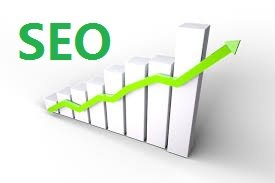Two things to begin with.
- a) eCommerce is a massive Trillion dollar industry. b) SEO runs the Internet. Put a & b together and you have a gargantuan beast that is too tough to handle.
SEO by itself is a topic that most marketers are uncertain about. eCommerce keeps growing in size and complexity every single day making things even more difficult for marketers.
As a result of the prevailing confusion, there are so many myths that surface. Myths which hurt the marketing efforts of eCommerce businesses.
Want to know what those myths are? We have covered some of them in the lines below.
Read More: SEMRush Review: Only Tools You Need to Overtake Competitors
#1 SEO brings instance results
Well, nothing is so wrongly understood about SEO than the myth that it brings instant results. SEO cannot bring your business leads or SERP with the push of a button. For some websites, SEO might start yielding returns in a week’s time, for others it could take a couple of months.
There are several things at play like domain authority, content, keyword strategy and target market that determines how quickly you are able to yield results from SEO.
#2 SEO is free
Nothing ever good comes for free. SEO is awesome, so it does not come free of cost. Even if you take PPC campaigns off the equation, you still have to pay your marketers, which is an ancillary cost.
To get the most out of SEO an eCommerce business has to invest in paid campaigns. Search Engine Marketing which is the mirror side of search engine optimization helps scale the success you have tasted in SEO. in other words, SEO is NOT free. It is inexpensive considering the money that traditional marketing mediums demand.
#3 SEO gets only first-page ranking
It is true that the prime objective of any SEO campaign is to rank higher in search engine rankings. However, higher ranks are targeted only to drive organic traffic. So in a way, the prime motive of SEO is to drive organic traffic. With organic traffic comes high quality leads.
So, the bottom line is, SEO is not a mechanism to get better search engine ranking, but a lead generation mechanism. It needs a strategy, the culmination of several resources and perfect timing. You cannot cheat the search engine algorithm. You can only play according to its preset protocols. Which brings us to our next point, fixing the competitor strategy.
#4 I can copy my competitor’s SEO strategy
Even if your business model is exactly identical to your competitor, you need a separate SEO strategy. The strategy should be tailor-made to your business needs, current performance and future needs. So, copying your competitor strategy is an extremely bad idea.
You need to craft an SEO strategy from scratch, detailing the list of keywords you are planning to target and the frequency at which you want to target it. In fact, your SEO strategy is what will drive your business growth. Without it, all your marketing efforts will not fetch the Internet’s attention.
#5 I can automate my SEO process
You can, but you cannot. There are plenty of tools that help you automate your SEO tasks. Nevertheless, a large chunk of the SEO process has to be done manually. It is more of a knowledge work involving research and competitor analysis which a software cannot do. Even if it can, the efficiency of a human being would be missing.
#6 Duplicate content is bad for SEO
Google and most search engines hate plagiarised content. But, not always. There are certain instances when you can use duplicated content or alert the search bots that is actually the same content that is being reused for a specific purpose.
This is typically applicable for eCommerce stores where there will be too many duplicate products for different colors or model sizes. Canonical tags can help you remove duplicate pages that may not provide the searcher with any new information.
The fact about SEO is, it is largely dependent on backlinking. So even if your website is hosting duplicate product descriptions, if the backlink profile is good, it will help you rank better.
#7 Customer reviews do NOT form part of SEO
Long story, short: customer reviews DO form part of SEO. Customer reviews are basically User-generated content in form. They are created by users and hence are written in first-hand using natural language. As a result, search bots consider them as ideal content that can be crawled and indexed for SEO ranking.
#8 SEO can fix everything
SEO is a marketing mechanism. Not a permanent solution for anything. For instance, if you are having a high rate of cart abandonment due to payment security concerns, the remedy you need is an SSL certificate. SSL certificate, trust seals, and HTTPS bars are all proven ways to make your customers trust your eCommerce store more. SEO cannot help achieve that level of trust. The best it can do is help build a brand through off-page optimization.
Why Should You Stop Believing Seo Myths?
Like with anything that is hugely popular, SEO is also prone to be shrouded with too many myths. We have unraveled some such myths in the paras above. These myths and the truth behind them must help you unravel the truth and steer your SEO efforts in the right direction.
Wondering where to begin? Start by asking your team the questions revolving around these myths. That must highlight the myths that your fellow marketers could be used to. Now break open the truth and enlighten them of the right way of marketing.
With that, your eCommerce SEO strategy should be taken care of. Your organic traffic will improve, conversions rates will soar and your bottom line will inflate to an impressive rate.
Have anything related to eCommerce myths to share with us? Let us know in your feedback.





